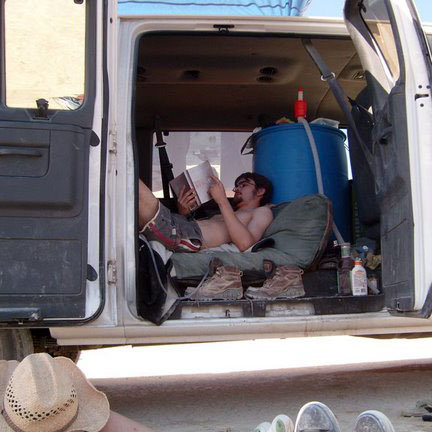Omissional, Commissional... Original?
"Your code begins by damning man as evil, then demands that he practice a good which it defines as impossible for him to practice. It demands, as his first proof of virtue, that he accept his own depravity without proof. It demands that he start, not with a standard of value, but with a standard of evil, which is himself, by means of which he is then to define the good: the good is that which he is not.
It does not matter who then becomes the profiteer on his renounced glory and tormented soul, a mystic God with some incomprehensible design or any passer-by whose rotting sores are held as some inexplicable claim upon him—it does not matter, the good is not for him to understand, his duty is to crawl through years of penance, atoning for the guilt of his existence to any stray collector of unintelligible debts, his only concept of a value is a zero: the good is that which is non-man.
The name of this monstrous absurdity is Original Sin.
A sin without volition is a slap at morality and an insolent contradiction in terms: that which is outside the possibility of choice is outside the province of morality. If man is evil by birth, he has no will, no power to change it; if he has no will, he can be neither good nor evil; a robot is amoral. To hold, as man's sin, a fact not open to his choice is a mockery of morality. To hold man's nature as his sin is a mockery of nature. To punish him for a crime he committed before he was born is a mockery of justice. To hold him guilty in a matter where no innocence exists is a mockery of reason. To destroy morality, nature, justice and reason by means of a single concept is a feat of evil hardly to be matched. Yet that is the root of your code.
Do not hide behind the cowardly evasion that man is born with free will, but with a "tendency" to evil. A free will saddled with a tendency is like a game with loaded dice. It forces man to struggle through the effort of playing, to bear responsibility and pay for the game, but the decision is weighted in favor of a tendency that he had no power to escape. If the tendency is of his choice, he cannot possess it at birth; if it is not of his choice, his will is not free.
What is the nature of the guilt that your teachers call his Original Sin? What are the evils man acquired when he fell from a state they consider perfection? Their myth declares that he ate the fruit of the tree of knowledge—he acquired a mind and became a rational being. It was the knowledge of good and evil—he became a moral being. He was sentenced to earn his bread by his labor—he became a productive being. He was sentenced to experience desire—he acquired the capacity of sexual enjoyment. The evils for which they damn him are reason, morality, creativeness, joy—all the cardinal values of his existence. It is not his vices that their myth of man's fall is designed to explain and condemn, it is not his errors that they hold as his guilt, but the essence of his nature as man. Whatever he was—that robot in the Garden of Eden, who existed without mind, without values, without labor, without love —he was not man.
Man's fall, according to your teachers, was that he gained the virtues required to live. These virtues, by their standard, are his Sin. His evil, they charge, is that he's man. His guilt, they charge, is that he lives.
They call it a morality of mercy and a doctrine of love for man."
-- Ayn Rand, Atlas Shrugged
LEAVING HOME
This is where the cordon ends:
the gates are down, the open space
is spreading out across the streets,
the buildings lie in spent disgrace.
This is why our questions ache:
we take the risk, we breathe the thoughts
that spread like dust through eyes and ears
and settle in our brain and lungs.
This is how we crashed the car:
we left the road, we blurred the lines
and shifting up from gear to gear
we raced your gods across the sky
past heaven, through the pearly gates,
past aged Peter in his chair;
past Michael with his saxophone,
past Jesus and his dead-eyed stare.
This is where the doorways stop:
the boxed-in thoughts, the dogma queue
with bouncers all in coloured robes
on undermanding mind-control.
This is why you burnt the books:
you crossed yourself, your conscience wracked
with television interludes,
you took your car and left the facts
in no-man's land, beyond the pale;
on Nietzsche's chessboard, rife with lies;
on river beds, in concrete shoes;
encoded in a lover's smile.
This is why we took the step:
the hidden path, the Holy Ghost
erasing footsteps in the snow
his breath like forced forgetfulness
all hanging frozen in the air,
encasing men in dreamless sleep
but we?
we dreamt of being there,
and when we woke its silver thread
was leading back, and taught us how
to take one step beyond the plan:
we walked the way behind the worlds
and softly, sailing ships of reeds,
we left the Lord's familiar strands.

